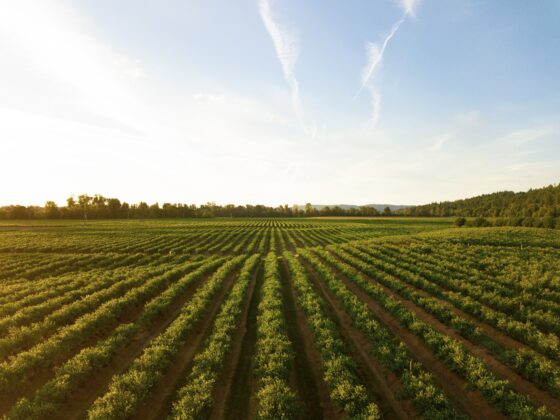
(AFP) – “Go pee on the rhubarb!”: This grandmother’s advice is inspiring researchers and NGOs to find an alternative to fertilizers, reduce environmental pollution and feed a growing population thanks to an unexpected ingredient, human urine.
Synthetic nitrogen fertilizers stimulate agricultural production. But when used excessively, they pollute the environment. Their prices are skyrocketing, even more so with the war in Ukraine weighing on farmers.
What to replace with? Our urine, say researchers, including Fabien Esculier, who has never forgotten his grandmother’s advice and is considering a review of more sustainable food systems.
To grow, “plants need nutrients, nitrogen, phosphorus and potassium,” explains the engineer and coordinator of the OCAPI research program in France. When we eat, we take in these nutrients before “excreting them, usually through the urine,” he continues. Urban droppings were used on farmland for a long time before being displaced by fertilizers.
But when these nutrients end up in rivers in excessive amounts, they promote the explosion of green algae, for example, and are “one of the leading sources of nutrient pollution,” emphasizes Julia Cavicchi of the Rich Earth Institute, based in America.
– Going beyond preconceived ideas –
Separating and collecting urine at the source requires rethinking the toilets, the collection network and overcoming certain preconceived ideas.
The separation of urine from the toilets was tested in Swedish eco-villages in the early 1990s, then in Switzerland or Germany. Experiments are underway in the United States, South Africa, Ethiopia, India and Mexico. In France, projects arise in Dol-de-Bretagne, Paris, Montpellier.
“Introducing ecological innovations takes time, especially a radical innovation like urine separation,” said Tove Larsen, researcher at the Swiss Federal School of Water Science and Technology (Eawag).
The first generation of toilets with a urine trap, found impractical and ugly, or the fear of bad odors, could have been a brake, she explains. A new model developed by the Swiss company Laufen with Eawag should solve these problems, the researcher hopes.
Fabien Gandossi owns restaurant 211 in Paris, equipped with dry toilets where urine is collected. “We have quite positive feedback, people are a bit surprised, but (..) they see little difference with a traditional system”.
“There are barriers to overcome,” said Marine Legrand, an anthropologist and member of the Ocapi network. But “we are beginning to understand how precious water is” and “it is becoming inadmissible to defecate in it”.
Are people still ready to eat urine-fertilized foods? A study shows that there are clear differences between countries. The acceptance rate is very high in China, France or Uganda, but low in Portugal or Jordan.
“This subject touches on the intimate”, analyzes Ghislain Mercier from Paris and Métropole Aménagement, which is developing an eco-district in Paris with 600 homes, shops… The urine will be collected there and will fertilize the Parisian green spaces.
– reorganize –
According to him, there is a lot of potential in offices, houses that are not connected to the sewer or slums without plumbing.
However, it is necessary to encourage the inhabitants to adhere, to reconsider the pipes, to face inappropriate legislation…
Once harvested, the urine has to be transported to the fields, which is expensive. Different techniques make it possible to reduce the volume and concentrate or even dehydrate the urea. The Rich Earth Institute is developing technical solutions to make spreading this fertilizer easy and cheap for farmers.
Since urine is not normally a major carrier of disease, it does not require heavy processing for agricultural use. The World Health Organization (WHO) recommends letting it rest. It is also possible to pasteurize it.
Urine is still struggling to establish itself as an alternative to synthetic fertilizers. But with rising gas prices and the desire of many countries to strengthen their food sovereignty in connection with the war in Ukraine, “economic constraints will catch up with us faster than we thought and make the subject more audible,” says Ghislain Mercier.
(Photo Credit: Photography by Dan Meyers/Unsplash)